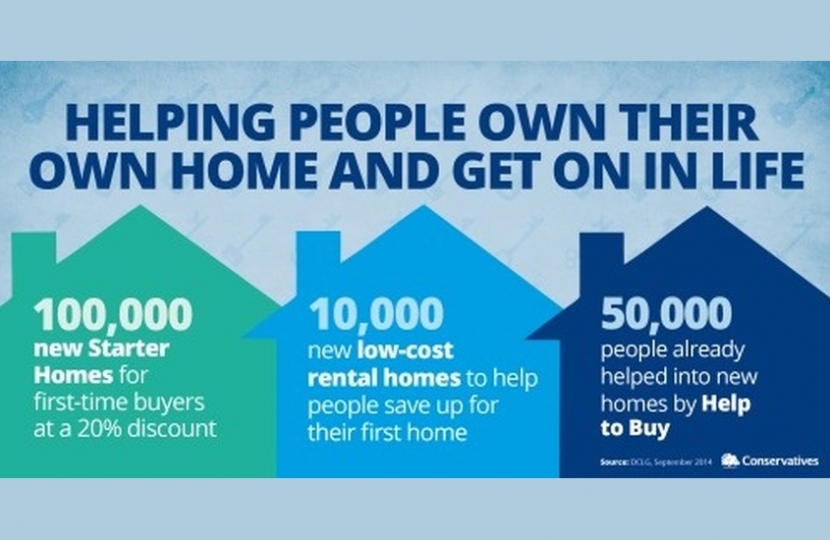
Prime Minister David Cameron has announced a plan to help 100,000 first-time buyers to get a home of their own. Under the new Help to Buy scheme, 100,000 new starter homes will be built specifically for first-time buyers at a price they can afford. So people who were previously locked out of the housing market will be able to get on the property ladder.
Under the new Help to Buy scheme, starter homes will see 100,000 additional homes built in England over the next parliament. They will be good houses, but 20% cheaper, and reserved for sale only to first-time buyers under the age of 40. We shall make them cheaper by exempting them from taxes, reducing development costs, and allowing the release of cheaper brownfield commercial land to build these homes on.
A first time buyer will be able to combine the 20% discount on the price of the new home with a Help to Buy mortgage through the existing Help to Buy schemes, so both the house and the mortgage will be made more affordable. Help to Buy equity loan and Help to Buy mortgage guarantee allow people to access an affordable mortgage with only a 5% deposit. So far they have helped over 50,000 households buy a home. The scheme will be extended to 2020, which will help 120,000 more people to enjoy the security of owning their own home.
Around 200,000 new affordable homes have been delivered since 2010 and a further 165,000 will be delivered in the three years between 2015 and 2018. In addition, while we need to do more, 137,780 homes were started in the 12 months to June 2014, an increase of 22% over the previous year.
This scheme will not cost the taxpayer a single penny.
Under Labour, housebuilding had collapsed to levels not seen since the 1920s. The average cost of a first-time home more than tripled from £50,000 in 1997 to £186,000 by 2010, and the deposit needed as a percentage of the price of a first-time home rose from 10.9% to 27.4%. House prices generally more than doubled between 1997 and 2007. So under Labour the number of first-time buyers collapsed, falling 60% from 1997 to 2009, and their average age increased from 29 in 1997 to 31 in 2009.
Labour still runs Wales, and there the number of new homes being built is still falling. New home registrations in England rose by 3% in 2013, but in Wales they fell by 12%. Labour red tape adds thousands to the cost of building a home.

